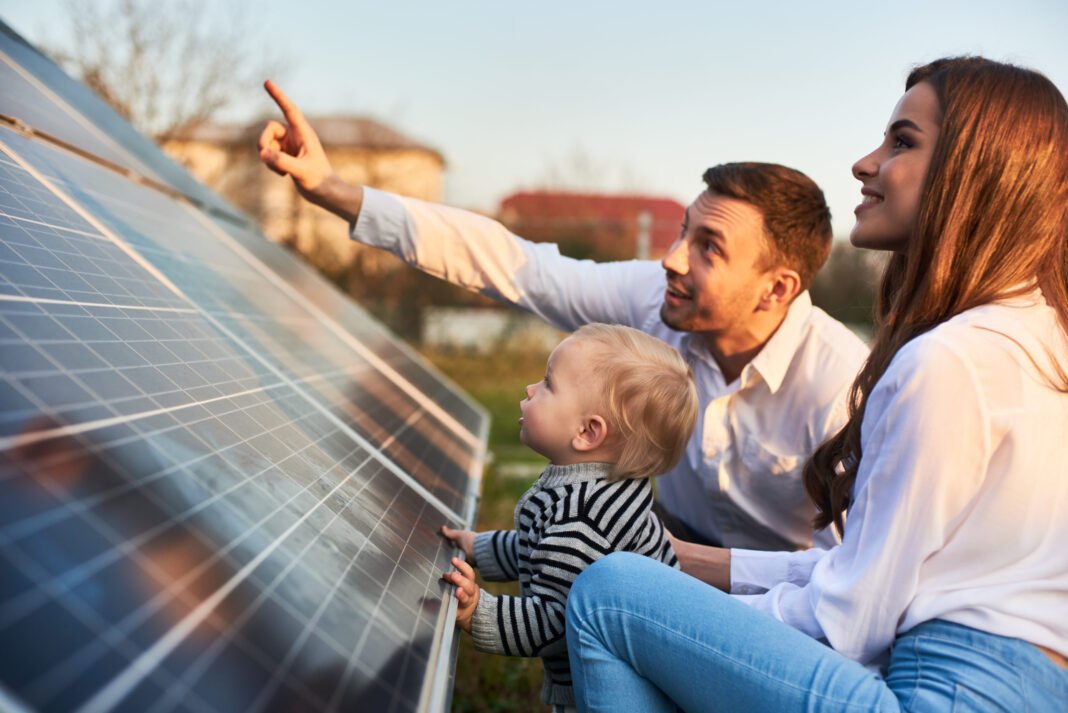The rise of smart home technology has revolutionized the way we interact with our living spaces. Coupled with solar energy, modern home automation systems offer unparalleled convenience, energy efficiency, and sustainability. This article explores the integration of solar energy with smart home systems, detailing how homeowners can maximize their energy savings and enhance their living experience.
The Benefits of Solar Energy in Smart Homes
Cost Savings
One of the primary benefits of integrating solar energy into a smart home is cost savings. Solar panels reduce reliance on grid electricity, leading to lower utility bills. By pairing solar energy with smart home devices, homeowners can further optimize their energy use, ensuring that they consume power during off-peak hours and store excess energy for later use.
Environmental Impact
Utilizing solar energy in smart homes significantly reduces carbon footprints. Solar panels generate clean, renewable energy, decreasing the need for fossil fuels. This sustainable approach helps mitigate climate change and promotes environmental conservation.
Enhanced Convenience
Smart home systems offer convenience through automation and remote control. Integrating solar energy with these systems enhances this convenience by ensuring a seamless and efficient energy supply. Homeowners can monitor and manage their energy consumption, automate devices based on solar production, and even sell excess energy back to the grid.
How Solar Energy Powers Smart Home Devices
Solar Panels and Inverters
Solar panels capture sunlight and convert it into direct current (DC) electricity. This DC electricity is then converted into alternating current (AC) electricity by an inverter, making it usable for household appliances and smart home devices. The efficiency of this process depends on the quality of the solar panels and the inverter.
Energy Storage Systems
To maximize the benefits of solar energy, many smart homes incorporate energy storage systems like batteries. These systems store excess solar energy generated during the day, which can be used at night or during periods of low sunlight. This not only ensures a continuous energy supply but also allows homeowners to be more independent from the grid.
Smart Energy Management Systems
Smart energy management systems play a crucial role in integrating solar energy with home automation. These systems monitor energy production and consumption in real time, providing insights and recommendations for optimal energy use. Homeowners can automate appliances to run during peak solar production times, reducing grid reliance and enhancing energy efficiency.
Integrating Solar Energy with Smart Home Automation
Smart Thermostats
Smart thermostats are an excellent example of how solar energy can be integrated with home automation. These devices learn homeowners’ schedules and preferences, adjusting heating and cooling accordingly. By linking smart thermostats with solar energy systems, homes can optimize HVAC usage based on solar production, using stored energy during peak demand times and reducing overall energy costs.
Smart Lighting
Smart lighting systems offer another opportunity for solar energy integration. These systems allow homeowners to control lighting remotely, set schedules, and use sensors to turn lights on and off automatically. By connecting smart lighting to a solar energy system, homes can ensure that lighting is powered by clean energy, reducing electricity costs and environmental impact.
Smart Appliances
Many modern appliances come with smart features that enable integration with home automation systems. Smart washing machines, dishwashers, and refrigerators can be scheduled to run during periods of peak solar energy production. This not only maximizes the use of solar energy but also reduces strain on the electrical grid.
Personal Experience: Embracing Solar-Powered Smart Living
As a homeowner passionate about sustainability, integrating solar energy with smart home technology has been a game-changer for me. My smart thermostat adjusts the heating and cooling based on my daily schedule and the energy produced by my solar panels. During sunny days, my energy storage system ensures that excess energy is stored for use at night, reducing my dependence on the grid. This seamless integration has significantly lowered my energy bills and enhanced my overall living experience.
Future Trends in Solar and Smart Home Integration
Advancements in Solar Technology
Technological advancements continue to improve the efficiency and affordability of solar panels. Innovations such as bifacial panels, which capture sunlight on both sides, and perovskite solar cells, which offer higher efficiency, are on the horizon. These advancements will make solar energy even more attractive and accessible for homeowners.
Expanded Energy Storage Solutions
The development of more advanced and affordable energy storage solutions is another exciting trend. Improved battery technologies will allow homeowners to store more solar energy, enhancing energy independence and reliability. This will be particularly beneficial for areas prone to power outages or those seeking to go off-grid.
Enhanced Smart Home Integration
As smart home technology evolves, the integration with solar energy systems will become more seamless. Future smart home devices will likely feature even greater compatibility with solar energy systems, offering more advanced energy management capabilities. This will enable homeowners to optimize their energy use further and maximize the benefits of solar power.
Conclusion
Integrating solar energy with modern home automation systems offers numerous benefits, from cost savings and environmental impact to enhanced convenience and energy independence. By understanding how solar panels, energy storage systems, and smart devices work together, homeowners can create a sustainable and efficient living environment. As technology continues to advance, the synergy between solar energy and smart homes will only grow stronger, paving the way for a greener and more connected future.


